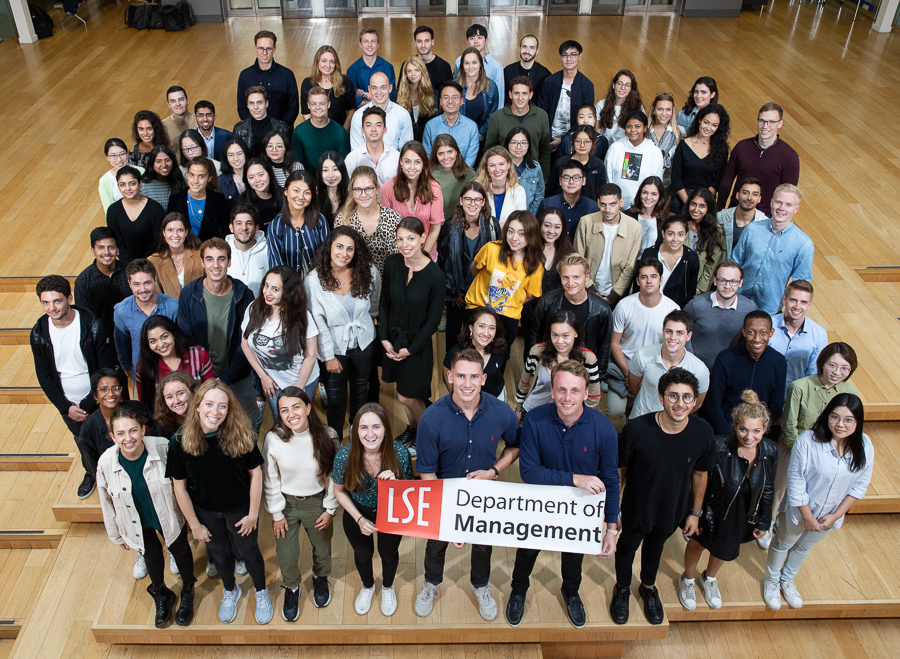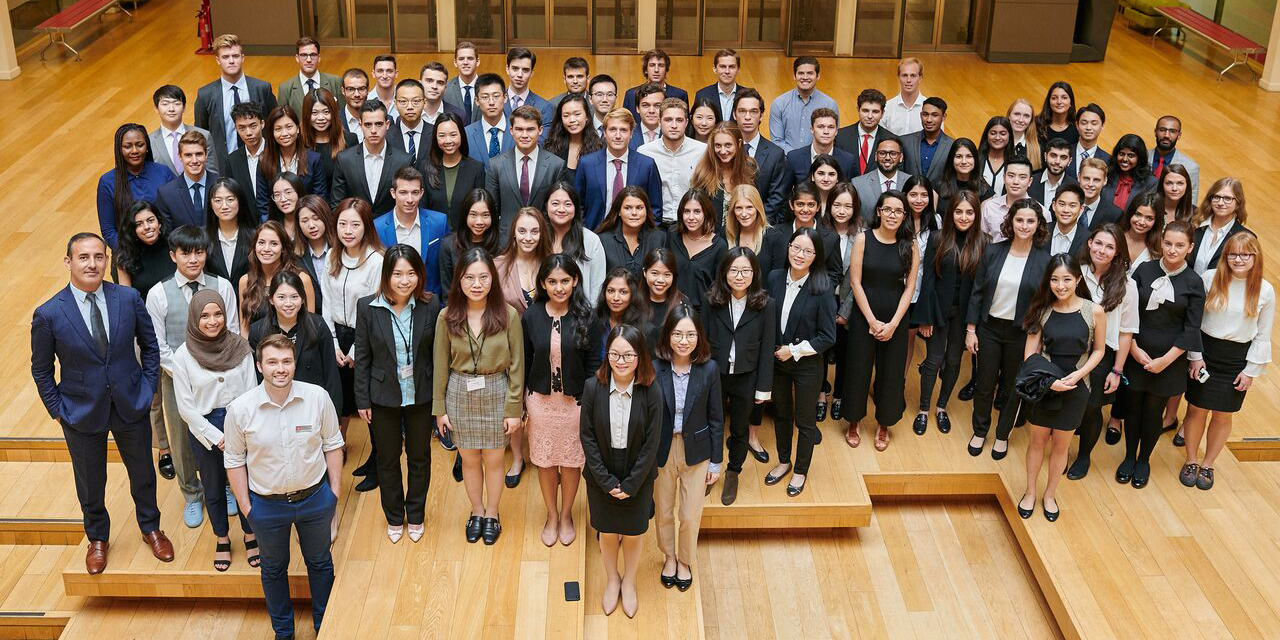Imagine the scenario. You’ve been given a choice to study a master’s in management at a business school as well as LSE. Time is ticking and you have a choice to make. What do you do? Student Ambassador and Global Master’s in Management (GMIM) student, Berenice Storti, tells us why she chose LSE.
It was that time of the year. After months of pressure, running around for recommendations and sending off my master’s application, I finally received the long-awaited news.
I was given an offer from a competitive business school to join an MSc in Management for a year. Weeks later, my offer for LSE also came through my inbox.
After a moment of excitation and relief, the reality sunk in. Time was ticking, I had to make a choice.
My background
A big chapter of my life was coming to an end. I was just about to complete my undergraduate degree in Political Economy. I spent three years studying, reading articles upon articles, and trying to understand what supposedly major contributions in the field of political economy were.
I spent countless days writing essays and my final year dissertation. Needless to say, I was done with theory.
I enjoyed playing with concepts, economics model, and it did sharpen my analytical skills. But my knowledge remained theoretical “in vitro”. It was time for me to move on to the next step and acquire “in vivo” skills and tools that would be necessary for my future professional endeavours.
At this moment in time, I asked myself – was I ready to be in a highly academic environment again?
Would a traditional business school provide me with more tools and new experiences?
My “Eureka” Moment
After actively seeking teachers and relatives’ personal advice, sifting through countless pros and cons lists on my beloved excel sheets, reading past student reviews online (mainly on this blog!) – I came to read that LSE’s way of teaching management was in a way different, but also similar to that of business schools.
You get taught the same curriculum but with a twist, they said.
Then I realised that what made LSE stand out for me was their eagerness to understand this complex topic that is Management.
Rather than pushing you to focus solely on your career after graduation, LSE focuses on making you “right-minded managers”. Before, I had this idea of managers as soulless cyborgs, programmed to take decisions merely to fulfil corporate interests.
Then came the first day of Professor Pepper’s pre-sessional: “You have to be an economist, a sociologist, a psychologist and more to understand Management,” said Pepper quoting John Maynar Keynes!
At this moment, it all made sense to me. I had my “Eureka” moment, LSE it was!
At this moment, it all made sense to me. I had my “Eureka” moment, LSE it was!
The great day arrived.
I was standing right beneath the big red ball, holding my precious student card… what a feeling!
After a few weeks of class, my past loathing of theory was no more. I finally saw a purpose in understanding scholars’ lines of thought, underlining the complexity and humanity of every organisation.
Everything is connected. Understanding the great connection between theory and practice was mind-blowing.
Through modules such as foundations of management I, you are taught:
- How to look beyond facts.
- Understand the hidden human, economics, strategic complexities of any business decision rather than just focusing on metrics, as many Business Schools do.
Above I mentioned that LSE is also similar to business schools; I was not lying as theory complements practice. During case presentations and group projects you are encouraged to think critically about managerial practices, ethics, corporate culture and much more. That is the LSE touch.
All of this teaches us to exercise prudence when making business decisions.
…you are encouraged to think critically about managerial practices, ethics, corporate culture and much more. That is the LSE touch.

Looking back, do I have any regrets?
Reflecting on my first term of class, you might ask me, do I regret my choice? The answer is a definite ‘no’.
Although the path leading up to now was quite indecisive, I can confidently say that I am exactly where I wanted to be at this stage of my life.
Here are some reasons why:
- I have never been in an educational institution with such an impressive legacy that truly lives up to its motto.
- LSE keeps cohorts relatively small, which creates a melting pot of different cultures, academic and professional background. This truly adds a significant edge to the multidisciplinary approach of management.
- Choosing the GMIM programme allows you to get the best of both worlds as you can complement your academic teaching with a semester abroad in a business school if you wish to do so.
I am confident that by the time I graduate, I will be equipped with all the skills I need to be competitive on the labour market, with additional knowledge and value that no other master’s in management will offer you.
…I will be equipped with all the skills I need to be competitive on the labour market, with additional knowledge and value that no other master’s in management will offer you.
Learn more about our Global Master’s in Management programme







